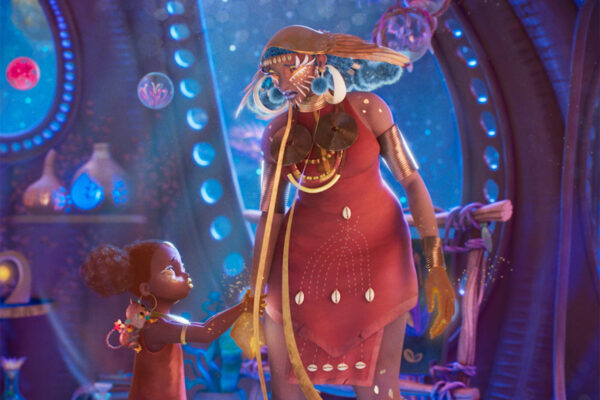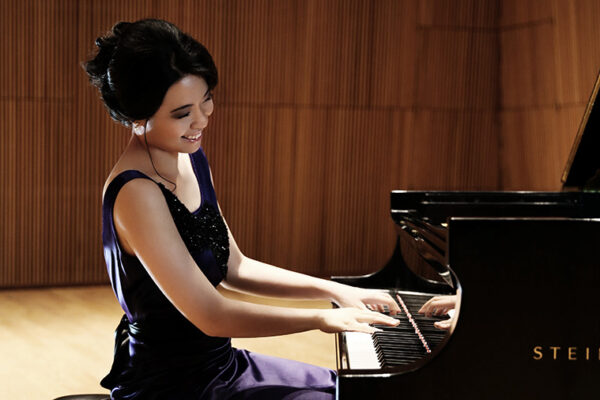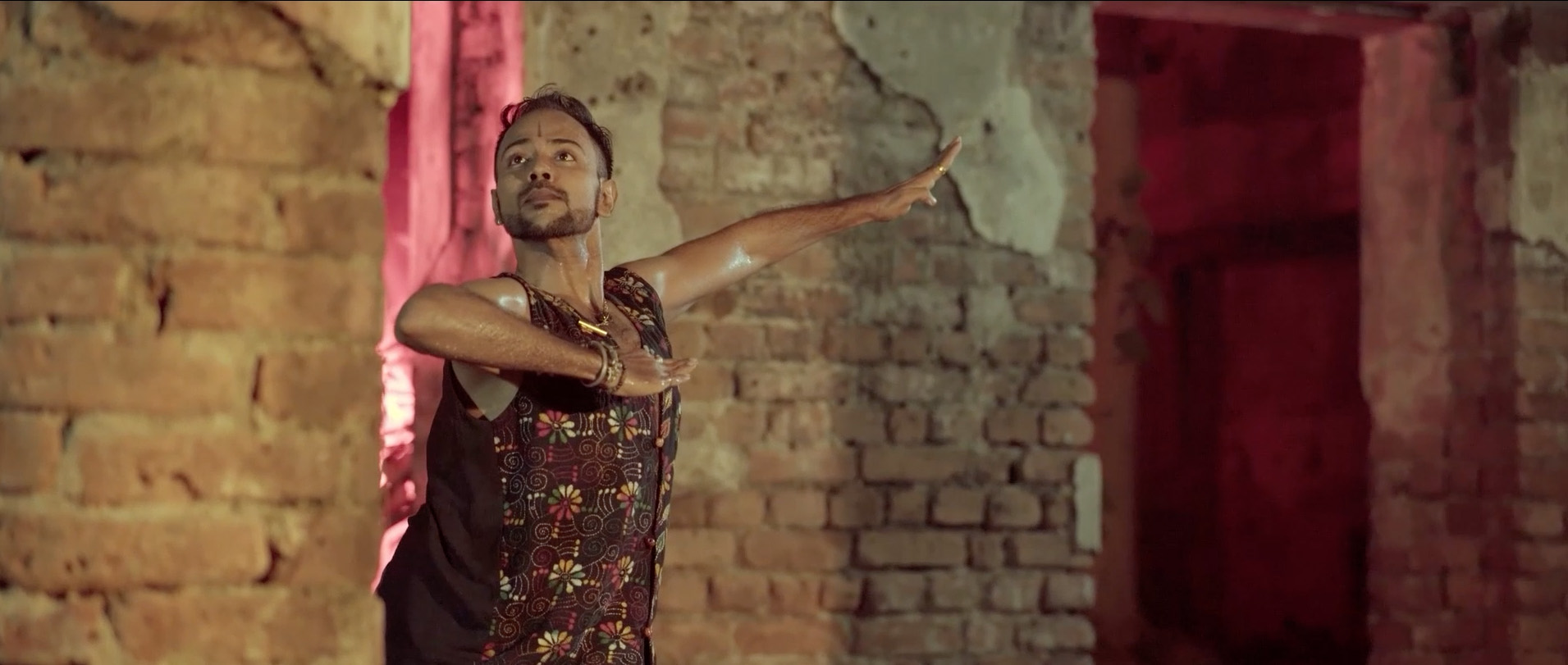
Twenty-two dancers take the stage, their movements rippling like waves.
“It’s a patient moment,” choreographer Emily Ehling said. “It’s curious and warm. It’s individual and communal. We begin with the ocean and we return to the ocean.”
Ehling is describing “Ark,” a new work that, on Friday and Saturday, March 22 and 23, will open the 2024 MFA Student Dance Concert at Washington University in St. Louis.
As an undergraduate in Arts & Sciences, Ehling studied dance and psychology, graduating with a double-major in 2018. She then danced professionally with MADCO, St. Louis’ Modern American Dance Company, and was a founding member of Resilience Dance Company. Returning to WashU’s Performing Arts Department as a master of fine arts candidate, she has explored the relationships between dance, theater, poetry and other artistic practices while also emphasizing an ethic of care.
“Dance is a form of therapy,” Ehling said. “Choreography is a form of therapy. I think about the ways we build community,” both onstage and in rehearsal, “and I want the audience to be part of that.”
In “Ark,” which Ehling began creating last summer, the ocean represents envelopment, collective life, the passage of time and the terrifying unknown. “We are all unique combinations of stories and relationships and experiences,” she said. “I think about the friends and family who have shaped us and the ways we carry them forward.”
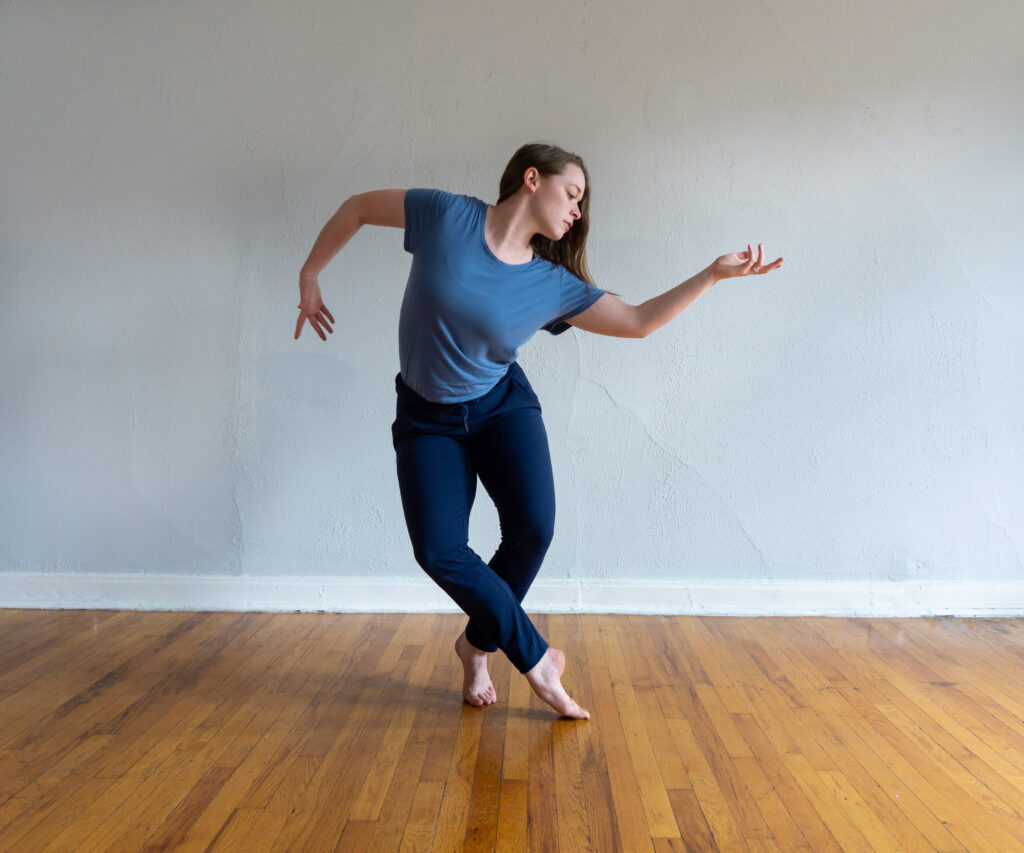
‘Swipe’
The MFA concert will continue with “Swipe,” a new work for 11 dancers by Carol Bertho.
A graduate of Unicamp, the State University of Campinas, Brazil, Bertho also studied at Íris Ativa Dança in Campinas and H+, the Hip-Hop Dance Conservatory, in New York. Her work, which frequently explores hip-hop culture in community settings, has appeared at major festivals and on television, as well as in videos, commercials and digital media, for which Bertho variously serves as producer, dancer and choreographer.
At WashU, Bertho has explored the social and communal aspects of dance, particularly forms arising from the African diaspora. With “Swipe,” she builds on the concept of “digital liveness,” first proposed by performance theorist Philip Auslander, to investigate how video, social media and other technologies shape our perceptions of live experience.
“I have a tricky, contradictory relationship with social media,” Bertho said. “The contrasts between real and virtual, and between private and public, are blurring. What is true? What is imagined? What is necessity and what is choice?”
“How do we embody movement in a digital world?”
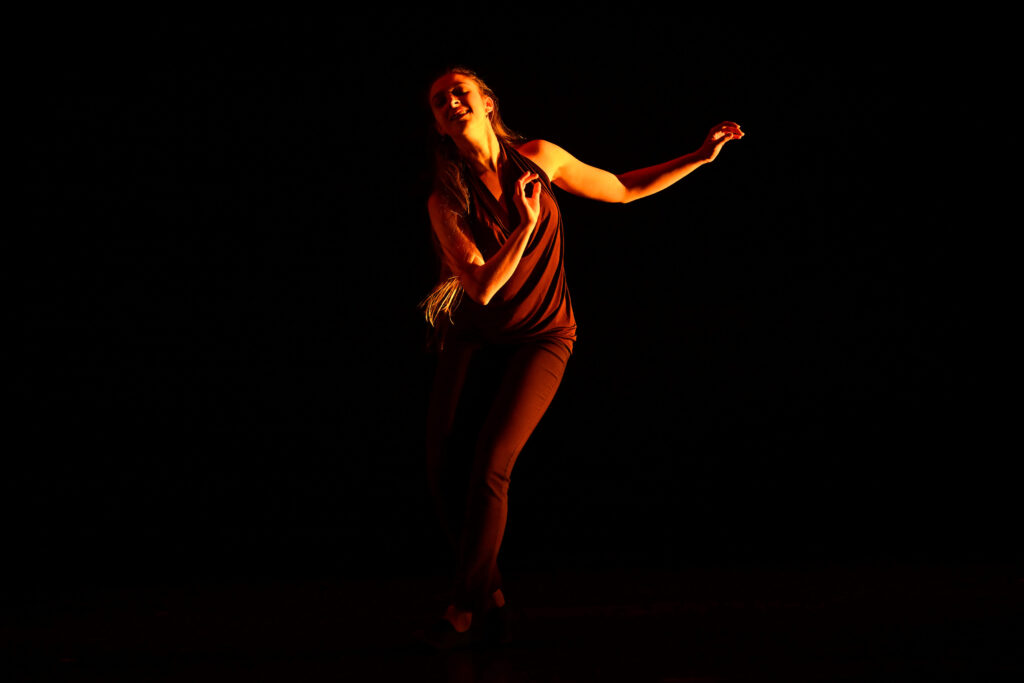
Remembering Amarnath Ghosh
Concluding the MFA concert will be “Seasons: Colors of My Life: A Take on Tagore’s Compositions,” a six-part dance film by Amarnath Ghosh.
An acclaimed classical dancer and vocalist from West Bengal, India, Ghosh was shot and killed Feb. 27 in St. Louis’ Academy/Sherman Park neighborhood, only months before he was due to complete his MFA degree. A homicide investigation by the St. Louis Metropolitan Police Department continues.
“Knowing Amarnath made life more beautiful,” said artistic director Elinor Harrison, a lecturer in dance and a faculty affiliate in philosophy-neuroscience-psychology in Arts & Sciences. “He lifted people up. His death has shaken us all to the core.”
“Seasons,” which Ghosh largely filmed in India, is inspired by Bengali poet Rabindranath Tagore (1861-1941), India’s first Nobel laureate. Ghosh had a long history of performing both Rabindra Sangeet, or songs written by Tagore, and Rabindra Nrita, a dance style based on Tagore’s dance/drama compositions.
The film opens slyly. Ghosh, relaxed and seated, jots in a notebook. He takes a deep breath. The first section, Grisma, or summer, arrives in a burst of sunlight as the dancer whirls across a series of stark landscapes. Following Tagore and the older Sanskrit tradition of dividing the year into six seasons, Ghosh then cycles through interpretations of Varsha (monsoon), Sharath (autumn), Hemanth (early winter), Sisheer (winter) and, finally, the emergence of Vasanth (spring).
“Tagore helped Amarnath deal with his own grief,” said Harrison, explaining that Ghosh lost both of his parents shortly before coming to St. Louis. And yet “he always left you feeling a little more joyful, more creative, more inspired, more connected, more confident in the goodness of humanity.”
She concluded: “Every day that Amarnath got to share his gifts and passions with the world was a blessing.”
The 2024 MFA Student Dance Concert will begin at 7:30 p.m. Friday and Saturday, March 22 and 23, in WashU’s Edison Theatre. Performances are free and open to the public. Edison Theatre is located in the Mallinckrodt Student Center, 6465 Forsyth Blvd. For more information, call 314-935-6543 or visit pad.wustl.edu.
In Ghosh’s honor, the Performing Arts Department has established a memorial fund to support international exchange and cross-cultural learning. To make a donation, visit giving.wustl.edu.
